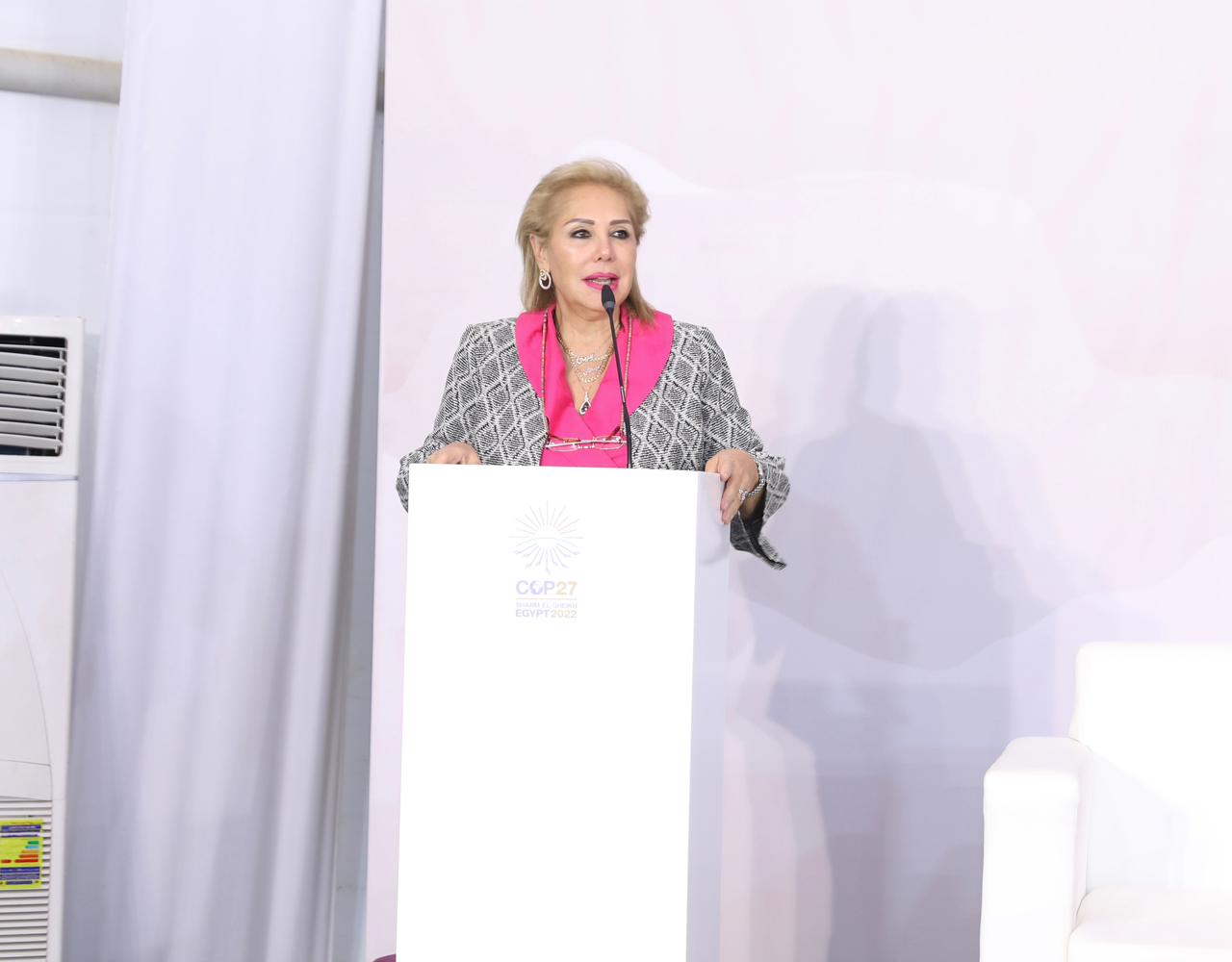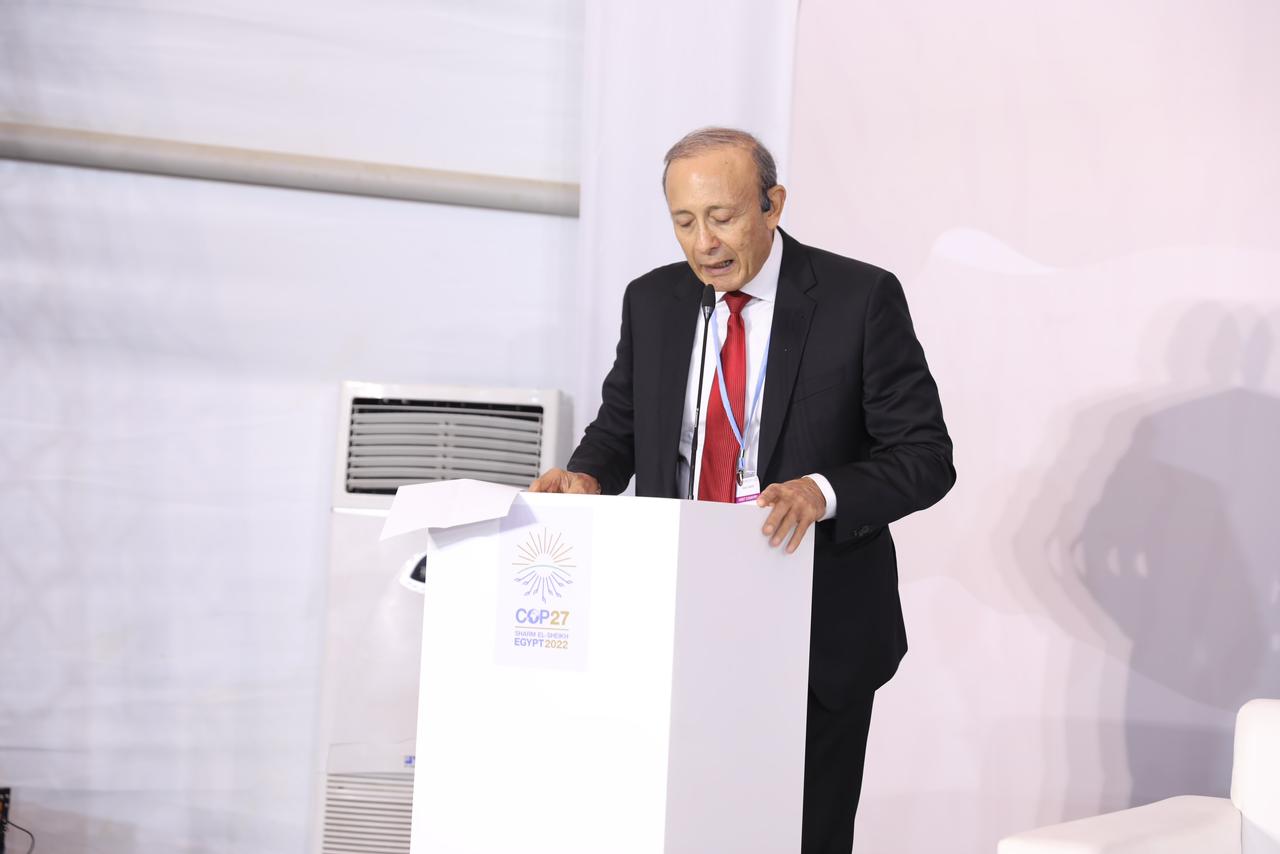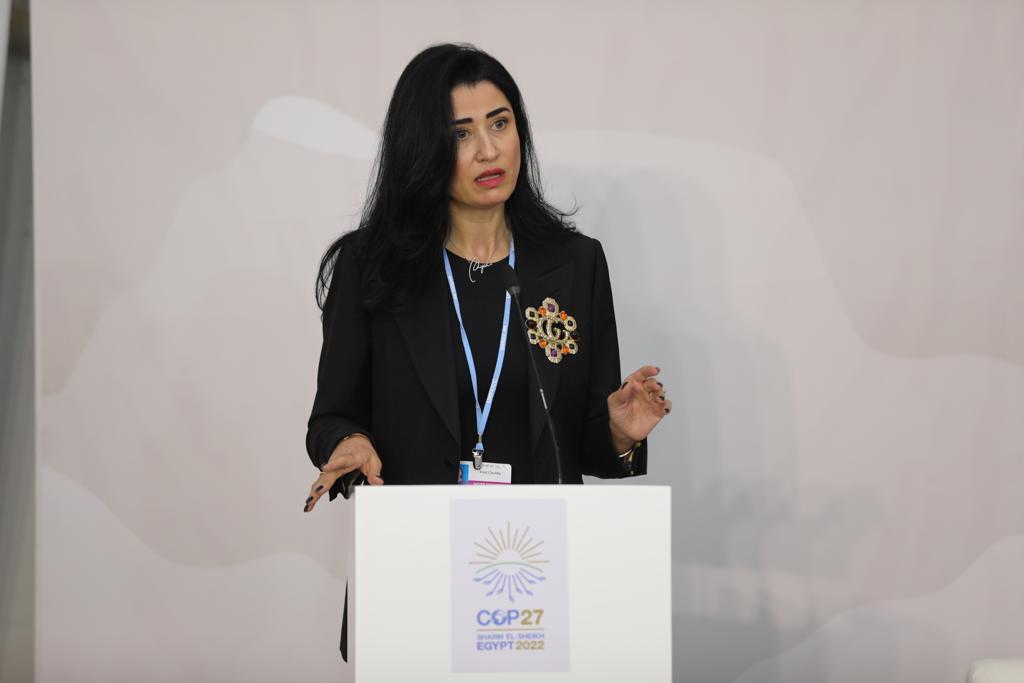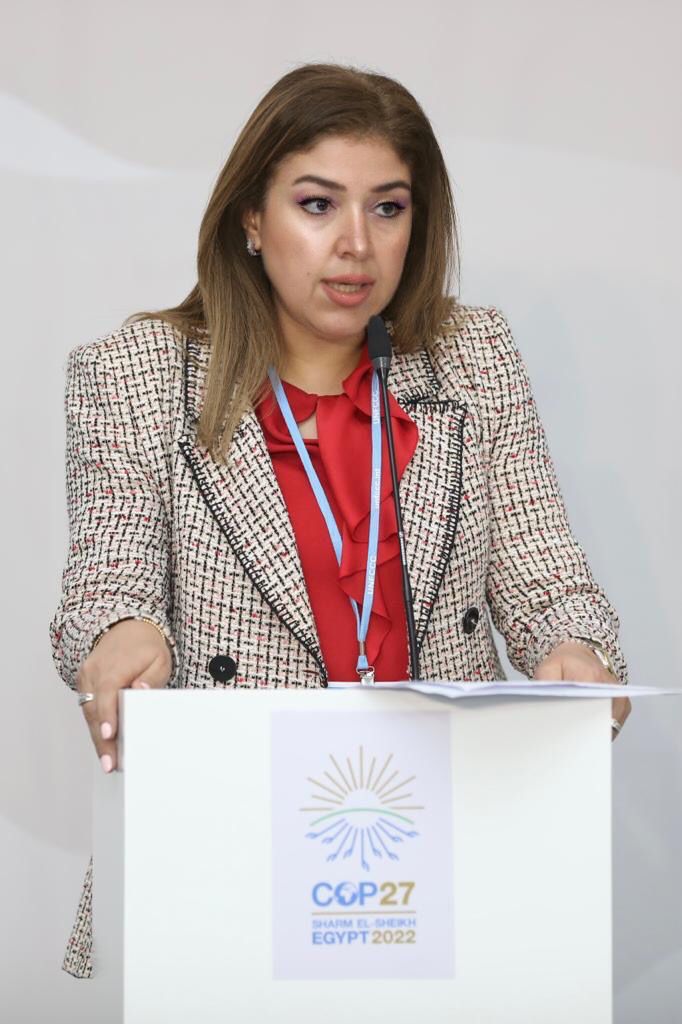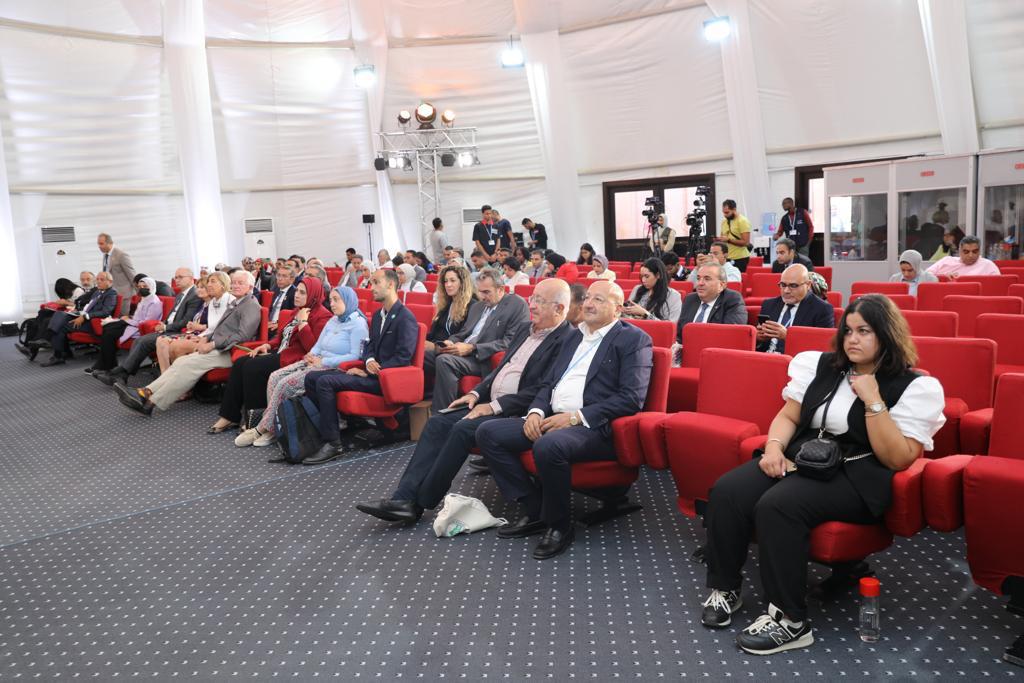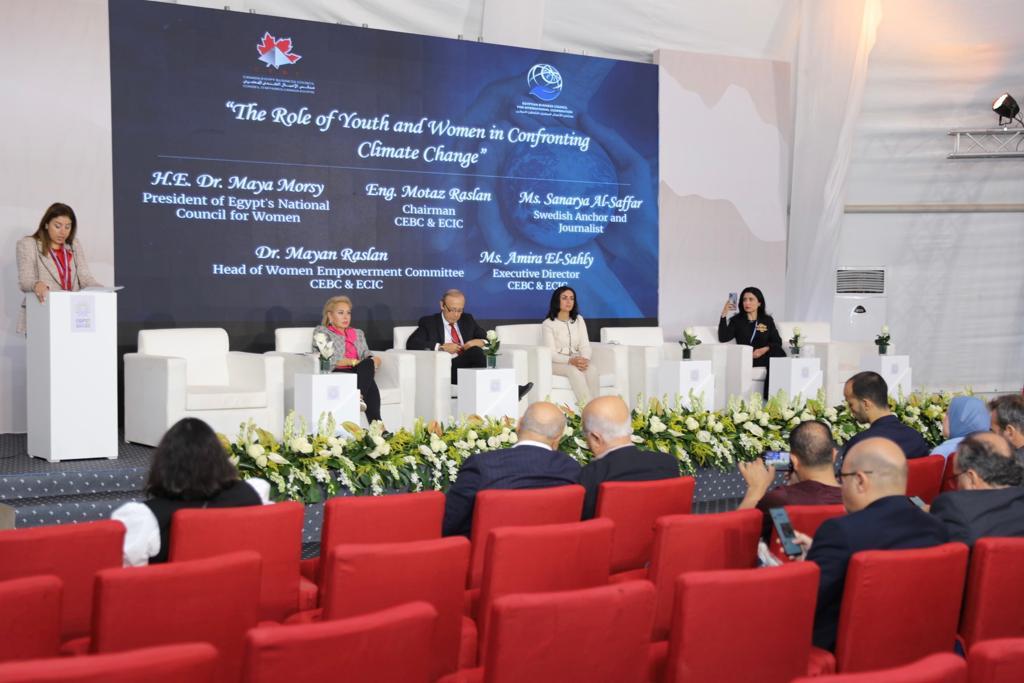
Date
Speaker(s)
Head of the Women committee- CEBC& ECIC; Ms. Christine Arab
UN Women in Egypt Representative TBC ;Ms. Sanarya Al-Saffar
Swedish Anchor and Journalist ; Dr. Maya Morsy- President of Egypt's National Council for women
Invitation
Description
Within the attempts of Canada Egypt Business Council and the Egyptian Business Council for International Cooperation, and their desire for more effective participation within the country’s development agenda, through endorsing the equal participation of the youth and women in decision-making process of climate change policies. The Councils held a side event during COP 27 taking place in Sharm El Sheikh entitled: “The Role of Youth and Women in Confronting Climate Change”.
Mr. Moataz Raslan, Chairman of CEBC and ECIC, started his opening remarks by signifying the role of women in environmental work, which is considered a main pillar in developing and building countries. He added that this pillar didn’t receive sufficient attention and has not had the necessary protection from the risks of climate change, to remain the most affected and most vulnerable to risks in all crises and environmental disasters throughout the ages. Mr. Raslan stated that, according to the United Nations statement issued on the International Day of Women in March 2022, women are more likely to suffer from the negative impact of climate change than men, and the reason is that they are the majority of the world’s marginalized community and more dependent on the natural resources that climate change more than others. He also mentioned that while he was concerned that there are about 1.5 million girls suffer from early marriage, as a direct result of climate change, and added that 80% of the displaced people due to climate change are women.
From her side, Dr. Maya Morsy, President of Egypt’s National Council for Women, affirmed that the link between women, the environment and climate change is an important topic in the field of public policies, explaining that in order to effectively address climate change, women should be at the heart of the implementation and governance of ecosystems, and reach full governance, improving the mechanisms and frameworks of adaptation, mitigation and response in order to deal better with the needs of women and put them in the stage of a fair environmental transition.
Dr. Maya pointed to Egypt’s vision for women, the environment and the climate change that she presented to the United Nations last March, a vision that is based on 7 main pillars, which are working on methods that take into account the needs of women during the process of adapting to the repercussions of climate change, enhancing the effective participation of women in environmental governance, taking advantage of the opportunities for women’s employment during environmental transition to the green economy and rational consumption within the framework of the sustainable development goals, addressing the health and social impacts and repercussions of environmental degradation on women. She also stressed on the importance of promoting awareness and behavioral change on women’s issues and climate change, spreading awareness and knowledge of women’s issues, the environment, climate change, and applying the principles of women’s empowerment and taking into account their needs during the process of financing climate change.
Dr. Mayan Raslan; the head of Women Empowerment Committee, CEBC &CEIC began her speech by stressing on the importance of youth’s participation in environmental work, and explained their prominent role in finding radical solutions that keep pace with the development in preserving the planet for future generations. She also indicated that, according to United Nations estimates, the number of youth in the world is about 1.21 billion. She stressed that many young people in countries represent a driving force in the pursuit of a low-carbon future that is able to adapt to climate change. She went on explaining that one of the wonderful initiatives in this context is what Egypt initiated by integrating the environmental dimension in the educational curricula of Egyptian schools and universities, where curricula and concepts were developed related to important topics such as biological diversity and climate change, with the aim of raising environmental awareness of various environmental issues. This is in response to the initiative of H.E. the President of Egypt to direct the integration of the environmental dimension into development programs. Despite this, the problems of youth awareness of climate change issues still represent a challenge that must be worked on and solutions to be found.
In the same context, Ms. Sanarya Al-Saffar, Swedish Anchor and journalist; emphasized the importance of the role that women and young generations, especially children, play in preserving the environment. She reviewed the Swedish experience in the effective participation of Swedish women in confronting to the negative impact of climate change through their active role in Swedish society, whether as mothers or active community members who spread environmental awareness. Ms Al Saffar called on to importance of securing the rights of future generations on living on a green planet. And she emphasized on capitalizing on the huge capabilities of youth and women alike in spreading environmental awareness and in making decisions that support having a greener environment.
From her side Ms. Amira El-Sahly, Executive Director of the CEBC & CEIC, indicated that the climate crisis is the ultimate red flag for humanity. “Young people are the leaders and drivers of the change that should be at the heart of the action we need to take, she added”. She also indicated the significance of the equal participation of young men and women in decision-making as a key to advancing climate agenda and turning commitments into actions, explaining that this cause goes beyond current generation, but concerns also future generations. ‘To implement an effective climate policy’, she added, we need to continue building strong partnerships at all levels and across generations to change the world. We need to channel the vibrant energy of young men and women in many ways to be the change makers. She went on calling for encouraging youth and women to become the brave voices inside corporates to force them to move to sustainability. Push for their colleges, and organizations to move their finances and funds into initiatives that back climate solutions and environmental sustainability. Start their own green business to displace old companies that will not change. She concluded that Egypt showed its leadership by assuming the presidency of the 14th Conference of the Convention on Biological Diversity in 2018, and today we are all witnessing the COP27 Climate Change Conference, which carries real steps to implement climate action plans in the green city of Sharm El-Sheikh.



